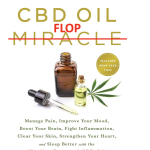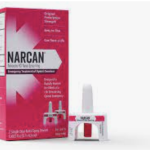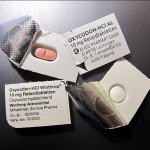Introducing CBD (cannabidiol), the latest fad in the ever-expanding universe of pseudo-medicine! It's the "miracle" cure that's as easy to buy as a candy bar – and about as effective as wishing on a shooting star. Americans, denied effective pain medicine and desperate for relief from their aches and pains, are jumping on the CBD bandwagon faster than you can say "snake oil." But the truth about this so-called remedy is about to hit harder than a reality check at a fantasy convention.
Drugs & Pharmaceuticals
The standard argument for restricting patient access to pain medications is that these drugs frequently lead to addiction. A large body of research contradicts that claim, though it's doubly absurd when directed at people afflicted by terminal (and often very painful) illnesses. They sometimes have only weeks or months to live, yet they're denied pain medicine in the name of fighting opioid dependence. Such absurdity has to stop.
Xolair, an antibody asthma drug, was recently approved for severe food allergic reactions. It is not the first biological drug to treat multiple conditions. But it is the first to treat severe food allergies - a growing problem.
Naloxone and Naltrexone sound alike, look alike chemically, and are both used to counter the misuse of opioids. But pharmacologically, they're strikingly different. This is why the two drugs are used for different purposes. Confused? Let's clear things up.
From vaccines and AI innovations to imminent breakthroughs, discover the cutting-edge advancements shaping the future of healthcare in this conversation with radio host Mark Hahn.
Psychotropic drugs are all the rage now as a potential treatment of brain diseases. Examples are ketamine and psilocybin for depression and PTSD. More recently, a single dose of LSD was found to have a long-lasting effect on generalized anxiety disorder. Some simple chemistry may explain how LSD can persist in the brain long after it is gone from the blood.
Nonalcoholic steatohepatitis (NASH) is a progressive liver disease with no current cure, but a drug called resmetirom may offer a lifeline for millions of patients, promoting a better quality of life and increased longevity.
The FDA has proposed changing the classification of marijuana from a Schedule I to a Schedule III drug. What impacts could this regulatory status change have on public health and drug regulation around the U.S.? Let's listen in.
Do opioids effectively control moderate-to-severe cancer pain? A recent review of the evidence says yes, though the press release for the study says otherwise, its headline declaring that the efficacy of opioids against cancer pain remains "unclear." Both statements can't be true, so which one is false?
There's a vital need for new and effective pain medications. Vertex just announced results from a Phase III study of its experimental drug VX-548. How well does the drug work? It's hard to tell. Here's why.
“The Controlled Substances Act (CSA) places all substances that were in some manner regulated under existing federal law into one of five schedules. This placement is based on the substance’s medical use, potential for abuse, and safety or dependence liability.” The FDA has proposed changing the classification of marijuana from a Schedule I to a Schedule III drug. Let’s break down its thinking.
A new company, Haleon, now sells dozens of products from what was formerly GSK's huge consumer health division, which was spun off in 2022. The company pretends to be highly ethical in its website propaganda, even doing its part to combat climate change by using low-carbon web pages (??). But does it practice what it preaches? Welcome to Voltarengate.










